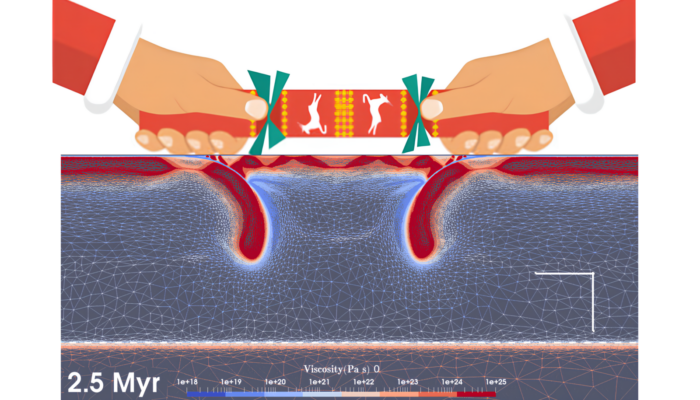Geodynamic models and landscape evolution models are becoming important tools to quantify the formation and development of paleogeographic features, contributing to our understanding of the patterns of biodiversity evolution. Earth, a dynamic system The Earth’s surface works as a dynamic system and is continuously sculpted through the geological timescale by weathering, wind, rivers, and many othe ...[Read More]
Dual inward dipping subduction: A Christmas Cracker Model
A recent research finds that dual inward dipping subduction framework, after considering thermal dependent deformation mechanisms, can pull apart the middle overriding plate (Lei and Davies, 2023), just like pulling Christmas crackers from both ends! Dual inward dipping subduction (DIDS) occurs when the overriding plate is decoupled with two subducting slabs dipping towards each other. DIDS is fou ...[Read More]
Physics-Based Machine Learning – Curse or Blessing?
The advance of Artificial Intelligence is impacting all spheres of human activity, and Geosciences are no exception. In this week’s post, Denise Degen from RWTH Aachen University, Germany, gives us a glimpse of what this means for Geodynamics. Discussing the advantages and caveats of different approaches, she shows how physics-based Machine Learning may help us investigating and understanding comp ...[Read More]
Goodbye to 6 years of blogging
Dearest reader, on this day, six years ago, we published our very first blog post, stating our geodynamission: our plans for this new geodynamics division blog. From that day onwards, I have had the absolute privilege of being your Editor-in-Chief. But all good things must end and so does my term of being the Editor-in-Chief. Before I say my final goodbyes, let’s take a trip down memory lane ...[Read More]




